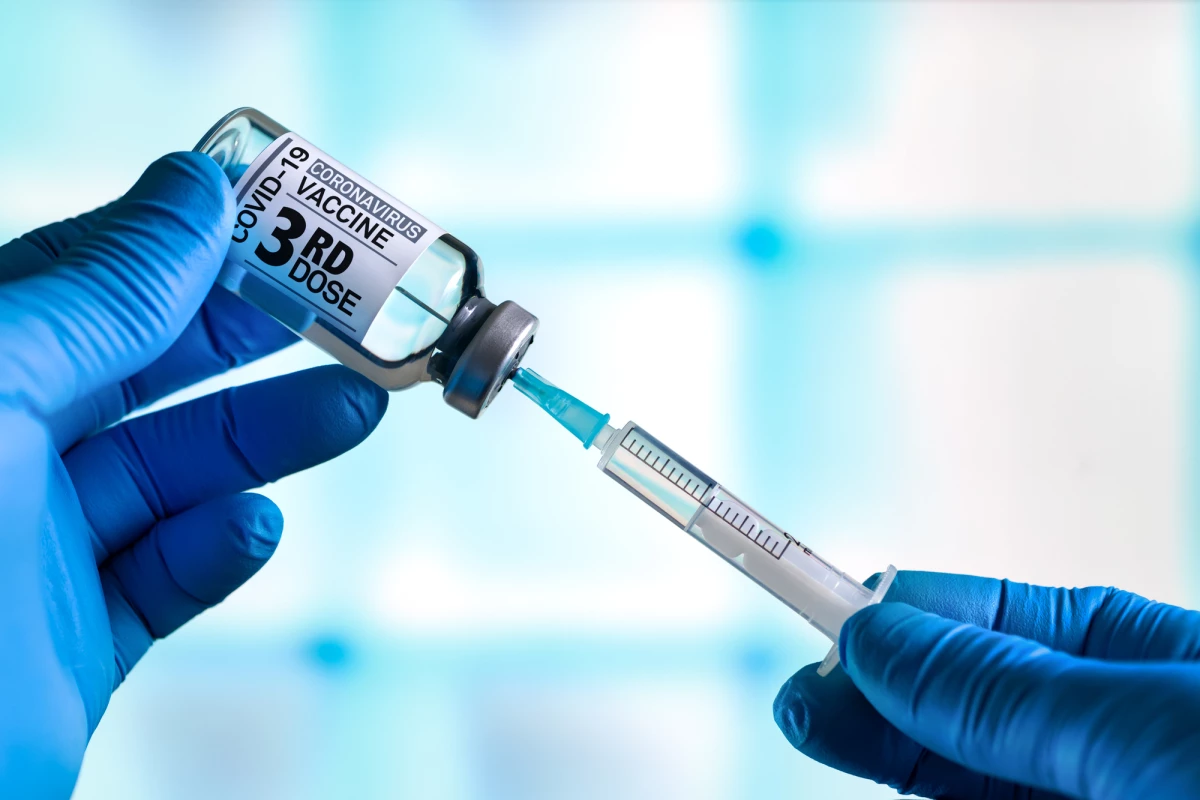New real-world data from the UK Health Security Agency has shown a third COVID-19 vaccine dose significantly boosts protection against symptomatic disease. The findings indicate a third dose will be vital in pushing back the growing wave of SARS-CoV-2 infections related to waning efficacy around six months after initial two-dose vaccination.
In mid-September the UK government started rolling out a third-dose of mRNA COVID-19 vaccine to those over the age of 50, and six months beyond an initial vaccination course. Using data from the National Immunisation Management System, researchers are now offering robust real-world evidence on the effectiveness of a third COVID-19 vaccine dose.
The findings indicate a huge increase in protection from symptomatic COVID-19 for over-50s around two weeks after a third dose. Overall, the new study found the third dose was 94 percent effective at preventing symptomatic disease.
A press release from the UK Health Security Agency (UKHSA) announcing the new findings notes protection from hospitalization and death with two COVID-19 vaccine doses remains relatively high after six months. However, older adults or those with pre-existing medical conditions do show a relevant degree of waning protection several months after two vaccine doses, and a third dose can boost overall protection from severe disease relative to those relying solely on long-term protection from two doses.
“The analysis shows that, in those who received the booster, the risk of catching symptomatic COVID-19 was reduced by more than an additional 80% compared to those who had only received two doses (87.4% for those who received two doses of AstraZeneca vaccines as a primary course and 84.4% for those who received two doses of Pfizer-BioNTech vaccines as a primary course),” the statement explains.
David Spiegelhalter, from the University of Cambridge, calls the new data “encouraging.” He says the findings particularly reveal a third dose helps boost waning protection from hospitalization in the vulnerable.
“An earlier study from this team estimated that double-Pfizer jabs gave around 99.7% protection against hospitalization, but which waned to 92.7% after 20 weeks,” says Spiegelhalter. “This may not sound much, but, in terms of ‘lack of protection’, it means their vulnerability relative to being unvaccinated went from 0.3% to 7.3%, more than a 20-fold increase in risk, which gives a stronger impression of the importance of waning immunity. Fortunately, the latest data suggest the booster may rectify this.”
The new data adds to a growing argument suggesting the primary COVID-19 vaccination course should be three doses rather than two. In a recent New York Times interview Anthony Fauci, director of the US National Institute of Allergy and Infectious Diseases and Chief Medical Advisor to the President, says we should start thinking about the third dose not as an optional boost but as a vital part of the primary vaccination protocol.
“…boosting is going to be an absolutely essential component of our response,” Fauci said. “Not a bonus, not a luxury, but an absolute essential part of the program.”
Peter English, former chair of the British Medical Association's Public Health Medicine Committee, concurs with Fauci’s three-dose primary protocol prediction. English estimates due to the profoundly infectious nature of the Delta variant of SARS-CoV-2 any meaningful degree of population immunity will require high volumes of people vaccinated with three doses.
“I have been predicting, confidently, for some time, that the vaccines will become a three-dose vaccination program, like so many of our other vaccine programs: a three doses “primary course”; which may subsequently be followed a year or more later by a reinforcing dose, if immunity wanes, or if vaccine-escape variants arise,” English says.
It is still early days for third dose programs around the world and one big unanswered question is whether effectiveness will wane at the same rate after three doses as has been seen after two. The world will be closely looking at Israel, which started its booster program in August, for insights on long-term third dose efficacy.
“…boosting is going to be an absolutely essential component of our response. Not a bonus, not a luxury, but an absolute essential part of the program.”
The Times of Israel recently reported on preliminary data from an unpublished study indicating promising long-term effects on antibody levels after a third vaccine dose. The researchers speculate antibody levels after a third dose could remain strong for up to 10 months.
Source: UKHSA




